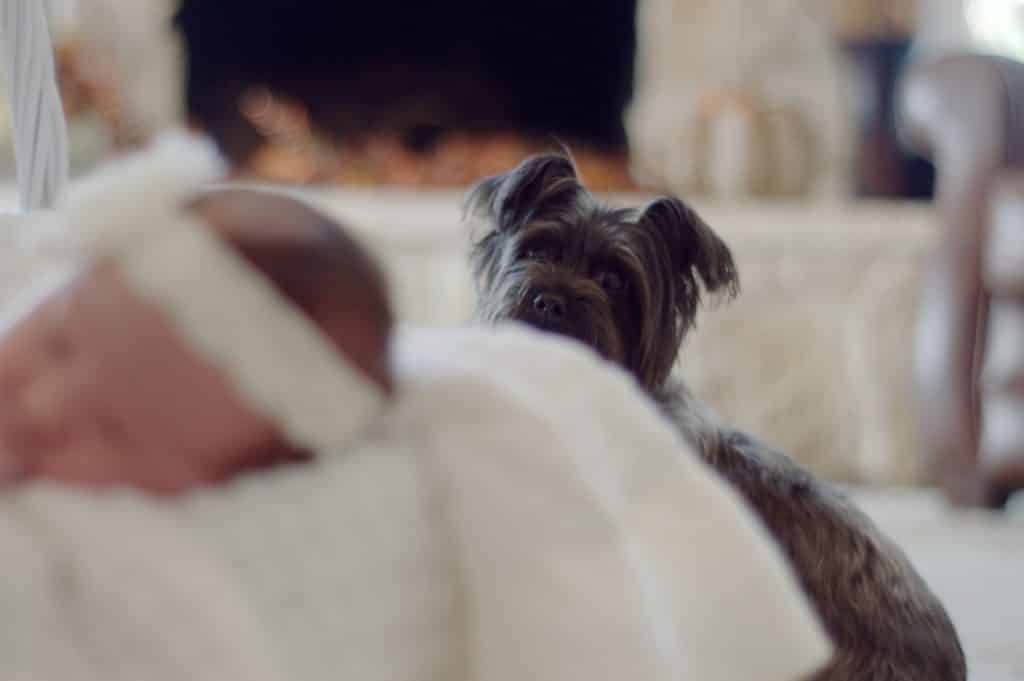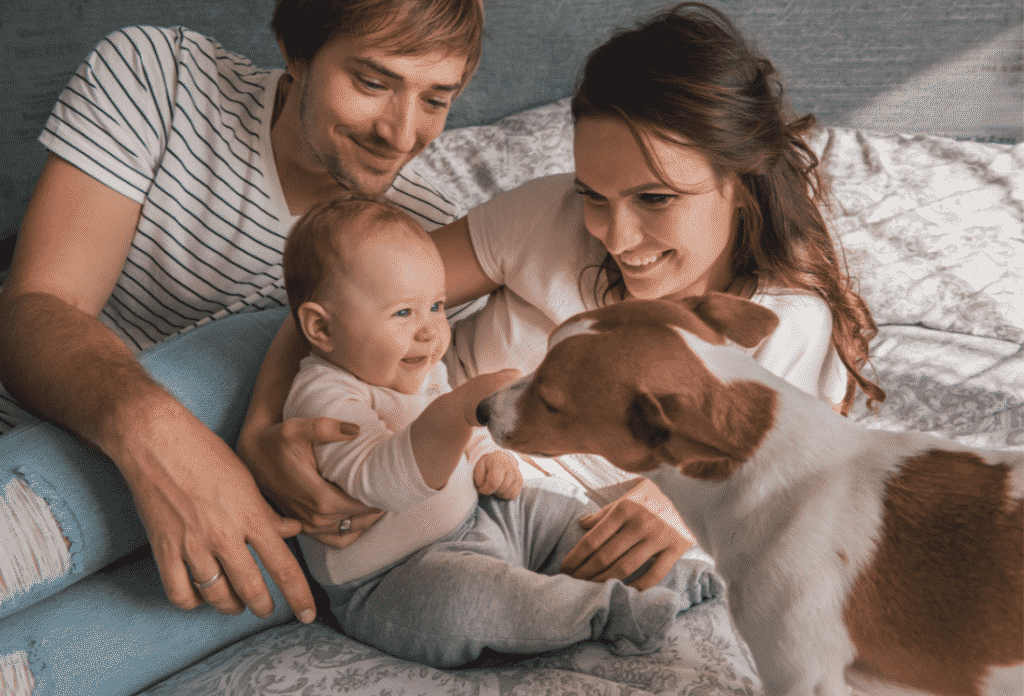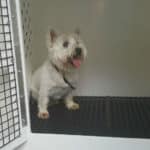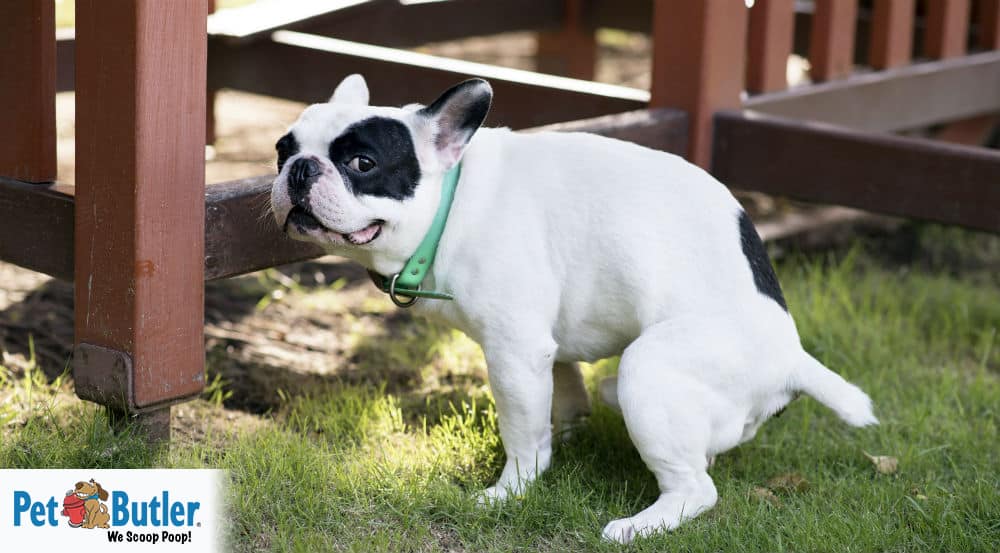Though your fur baby was once unquestionably the most important member of your household, human babies have a way of rolling in and shaking up even the most established family routine. That leisurely morning stroll, coffee in hand, with ample time to stop and chat up the neighbors or let your dog hunt for squirrels, is replaced by a quick slide into shoes, a rat’s nest of hair pulled high, and commanding bellows for your furry friend to, “hurry up!! Go potty!! Geez, how long do you have to SNIFF already?”
You can imagine how unsettling it would be to lose your throne and place on the bed to a smelly, screaming, unpredictable little one that wasn’t in the picture yesterday. Getting your dog prepared for the arrival of a new baby involves slowly acclimating them to all the changes that will take place in the home as well as teaching them some basic skills to keep every family member safe and serene.
How to Prepare Your Pup
Long before you come from the hospital, your pup may sense some impending shifts in their schedule. Morning sickness, sleeplessness, an ever-expanding belly, and new chemical smells alert them to changes in your body and routines.
Training
Now is the time to enroll in obedience classes if you haven’t already done so. Knowing how to sit, stay, greet guests without jumping, come when called, “leave it” when a toy is dropped, and go to their “place” or bed are all skills that will help them interact with the new baby and give you peace of mind.
A Safe Zone
Establish a safe zone for your pet, whether it be in a crate or behind a laundry room door, where they can retreat from the commotion and only good things (like that fancy chew bone) are offered. We all need a space to relax and decompress from time to time.
Familiarization
Since change can be stressful and losing their place as top dog may lead to jealousy, start familiarizing you pup to items related to the baby’s arrival and new schedules as early as the second trimester. Things to get your dog familiar with life with baby are:
- Sounds – Play baby sounds from an iPhone app to simulate a baby’s cry and use lotions, shampoo, and baby wipes on your own skin for a few weeks.
- Objects – Assemble large pieces of baby’s furniture and toys so they become familiar objects.
- Walks – Practice walking with your dog and the stroller.
- Attention – Begin to ignore your dog for the first few minutes after you arrive home. This may be a new and uncomfortable practice but will allow you to get the new baby settled inside safely before visiting with your pet.
Some pet owners go the extra mile and begin carrying a swaddled doll for a few months before the baby comes. Reward your dog when they ignore the doll or learn to sit if something (or someone) is in your arms.
Updating Their Routine
Waking at night for frequent bathroom breaks is unfortunately your new norm; your dog will come to expect activity at all hours long before the baby is born. If you plan on feeding your dog at the same time each day, invest in an automatic feeder and begin to use it now. A regular dog walker can help your dog expend some pent-up energy if you think you’ll be running on empty in the months to come. If your new routine will be no routine, mix up playtimes, feeding times, and exercise bursts. If your pet will no longer sleep in the bed with you, start to train them to go to their new safe zone and make sure you reinforce this behavior with lots of treats and attention!
Bringing Home Baby
Just before and as you’re coming home from the hospital…
- Bring an item of clothing from the baby back to your dog to smell. Dogs don’t instinctively know to be gentle around infants though many are curious; all initial interactions should be well-controlled and on-leash.
- Greet your dog without your baby in your arms or have other family members go inside first so initial enthusiastic greetings can be completed.
- Enter with a relaxed, but cheerful demeanor, and offer plenty of treats while your dog is in a sit-stay.

The dog should be rewarded for her calm interest in the new baby, and over several weeks add time and decrease proximity between the dog and baby. Even the best-behaved pooches can startle or become agitated, unintentionally scratching or harming a newborn. Always supervise these visits lovingly and you’ll soon have a bonded pair of lifelong friends.




